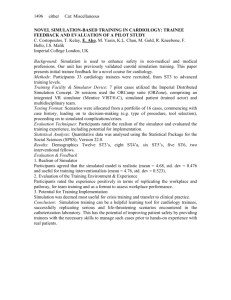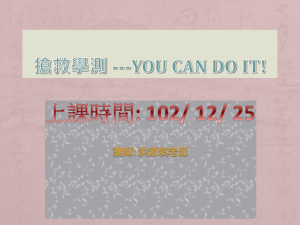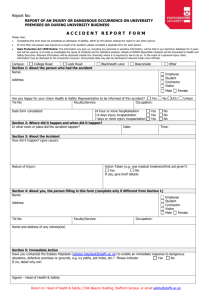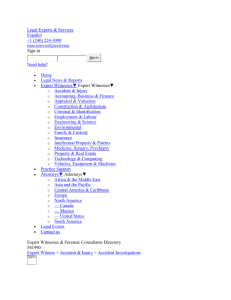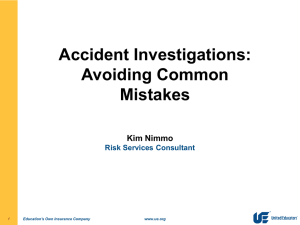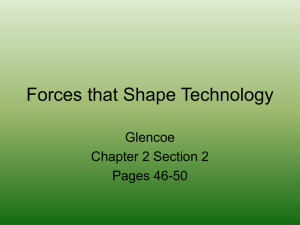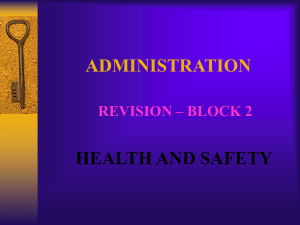doc
advertisement
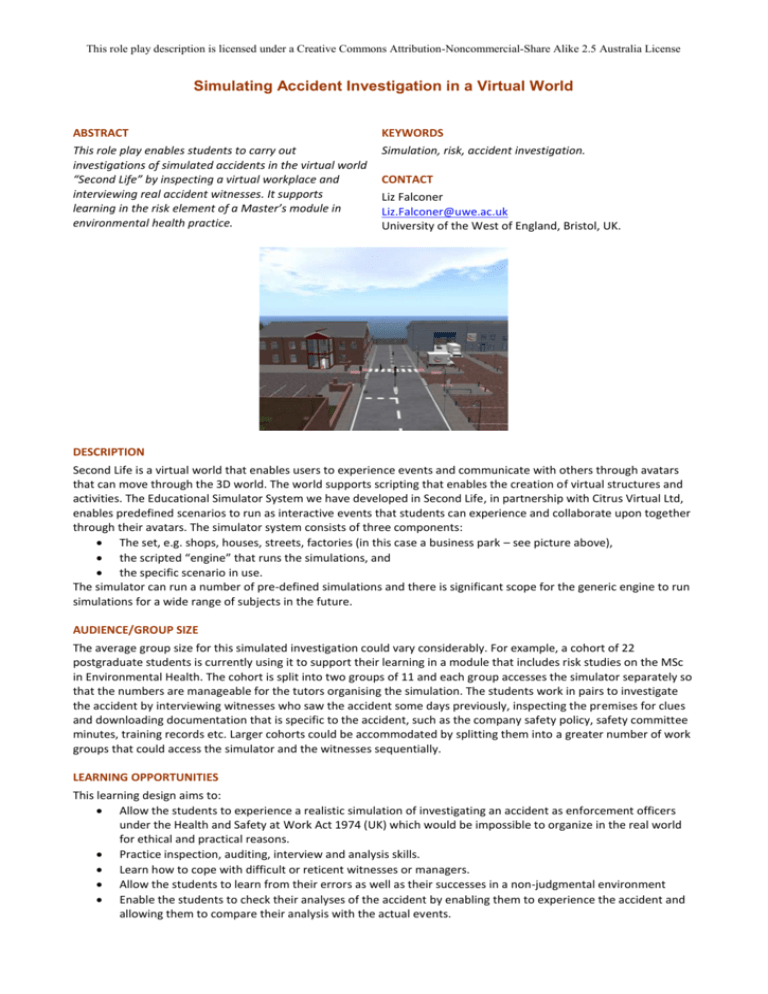
This role play description is licensed under a Creative Commons Attribution-Noncommercial-Share Alike 2.5 Australia License Simulating Accident Investigation in a Virtual World ABSTRACT KEYWORDS This role play enables students to carry out investigations of simulated accidents in the virtual world “Second Life” by inspecting a virtual workplace and interviewing real accident witnesses. It supports learning in the risk element of a Master’s module in environmental health practice. Simulation, risk, accident investigation. CONTACT Liz Falconer Liz.Falconer@uwe.ac.uk University of the West of England, Bristol, UK. DESCRIPTION Second Life is a virtual world that enables users to experience events and communicate with others through avatars that can move through the 3D world. The world supports scripting that enables the creation of virtual structures and activities. The Educational Simulator System we have developed in Second Life, in partnership with Citrus Virtual Ltd, enables predefined scenarios to run as interactive events that students can experience and collaborate upon together through their avatars. The simulator system consists of three components: The set, e.g. shops, houses, streets, factories (in this case a business park – see picture above), the scripted “engine” that runs the simulations, and the specific scenario in use. The simulator can run a number of pre-defined simulations and there is significant scope for the generic engine to run simulations for a wide range of subjects in the future. AUDIENCE/GROUP SIZE The average group size for this simulated investigation could vary considerably. For example, a cohort of 22 postgraduate students is currently using it to support their learning in a module that includes risk studies on the MSc in Environmental Health. The cohort is split into two groups of 11 and each group accesses the simulator separately so that the numbers are manageable for the tutors organising the simulation. The students work in pairs to investigate the accident by interviewing witnesses who saw the accident some days previously, inspecting the premises for clues and downloading documentation that is specific to the accident, such as the company safety policy, safety committee minutes, training records etc. Larger cohorts could be accommodated by splitting them into a greater number of work groups that could access the simulator and the witnesses sequentially. LEARNING OPPORTUNITIES This learning design aims to: Allow the students to experience a realistic simulation of investigating an accident as enforcement officers under the Health and Safety at Work Act 1974 (UK) which would be impossible to organize in the real world for ethical and practical reasons. Practice inspection, auditing, interview and analysis skills. Learn how to cope with difficult or reticent witnesses or managers. Allow the students to learn from their errors as well as their successes in a non-judgmental environment Enable the students to check their analyses of the accident by enabling them to experience the accident and allowing them to compare their analysis with the actual events. TIME AND SETTING The simulator is being used to support learning and assessment for the first time this academic year (2009/10) following testing earlier in 2009. The simulation setting has been chosen to reflect a typical location that Environmental Health Practitioners will encounter in their work in the UK. RESOURCES Resources that support the role play are The simulation in Second Life Web-based documentation such as simulated accident reports and the documentation described above Tutors and volunteer “witnesses” Specialist technical support in Second Life from an external contractor (Citrus Virtual Ltd) ASSESSMENT The summative assessment for this module consists of two elements: A report on a real life field trip, and A learning portfolio that contains students’ reflections upon, and evidence of, their learning. This simulation forms one of the reflective exercises for the learning portfolio. Whilst the simulation exercise itself is carried out in pairs, the learning portfolio is an individual document. Students are required to keep a weekly log of their learning and to reflect upon how the theory of risk perception, analysis and management can be applied to this simulation. In this way the investigation and analysis of the simulated accident builds as part of the evidence of learning. FACILITATOR ISSUES Facilitation is time-consuming in activities of this sort, especially the first time they are run as tutors learn what is needed and which systems need to be set up. Some important considerations in the use of virtual worlds for simulation activities are: Ensuring that students all have accounts in the virtual world and facilitating the setting up of those accounts Ensuring that the computers in the rooms to be used for the activity have up to date versions of the virtual world viewer installed Briefing the students clearly and thoroughly about how the activity will run, especially where some students have anxieties about the use of these kinds of technologies Ensuring that students are sufficiently familiar with the virtual world to be able to carry out the necessary activities there. Induction activities need to be provided so that students can orientate themselves inworld and acquire the necessary skills. It is advisable to keep the necessary skill level low in the early uses of the simulator, e.g. walking, clicking on items and text chatting. Setting up the witnesses to the accident, i.e. briefing them and enabling them to experience the accident once to give the students the most realistic experience of gathering information from actual witnesses. REUSABILITY This simulator “engine” has been reused to create a simulated occurrence in an old person’s home to enhance the learning of students in social care. The occurrence can be played out, augmented by avatars being involved in the scene and can be investigated or used as a case for discussion. REFERENCES AND LINKS Specific links E-learning Development Unit (ELDU) website at UWE, describing and explaining our online simulation initiative ELDU Second Life blog E-learning at UWE Island in Second Life General links Second Life website Citrus Virtual website
